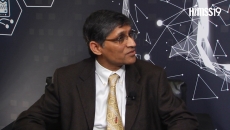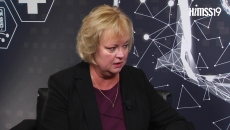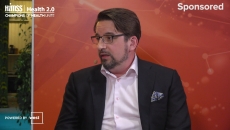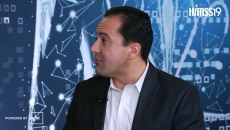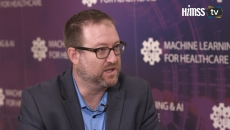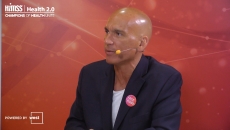Videos
Dr. Vinay Vaidya, chief medical information officer at Phoenix Children's Hospital, says it is crucial to keep data at the center of healthcare IT.
For hospitals and health systems to best foster a culture where patient experience is valued, they must include one key component: a positive experience for caregivers, says Sue Murphy, chief experience officer at UChicago Medicine.
SPONSORED
Machines and humans work best together, says Etsimo CEO Thomas Grandell, whose platform can help increase patient empathy by freeing up doctors' time, while ensuring patients stay healthier longer.
Taranaki District Health Board CIO Steven Parrish says New Zealand has an "interesting way of procurement" that makes it difficult for vendors.
Dan Bowden, CISO, and Michael Reagin, CIO of Sentara Healthcare, say that as more providers move to the cloud, they are seeing big advances in cloud security.
Many hospitals are doing a heroic job with limited resources, but those are often not sustainable without major changes, says Aaron Miri, CIO of UT Health Austin and Dell Medical School.
Todd Schlesinger, VP of business development at Jvion, says AI is already helping solve real-world challenges and improving patient outcomes.
We need to look at other ways to treat patients' pain without exposing them to high-risk medications, says Dr. James Hellewell, medical director of Care Transformation Information Systems at Intermountain.
Brian de Francesca, CEO of Ver2 Digital Medicine, aims to connect refugees with doctors via a ubiquitous telehealth platform.
Jan E. Larsson, SVP at Cambio Healthcare Systems, says the maturity of the Nordic healthcare model means that the time is ripe to focus on predictive care, while lowering the costs to patients and improving efficiency for providers.
